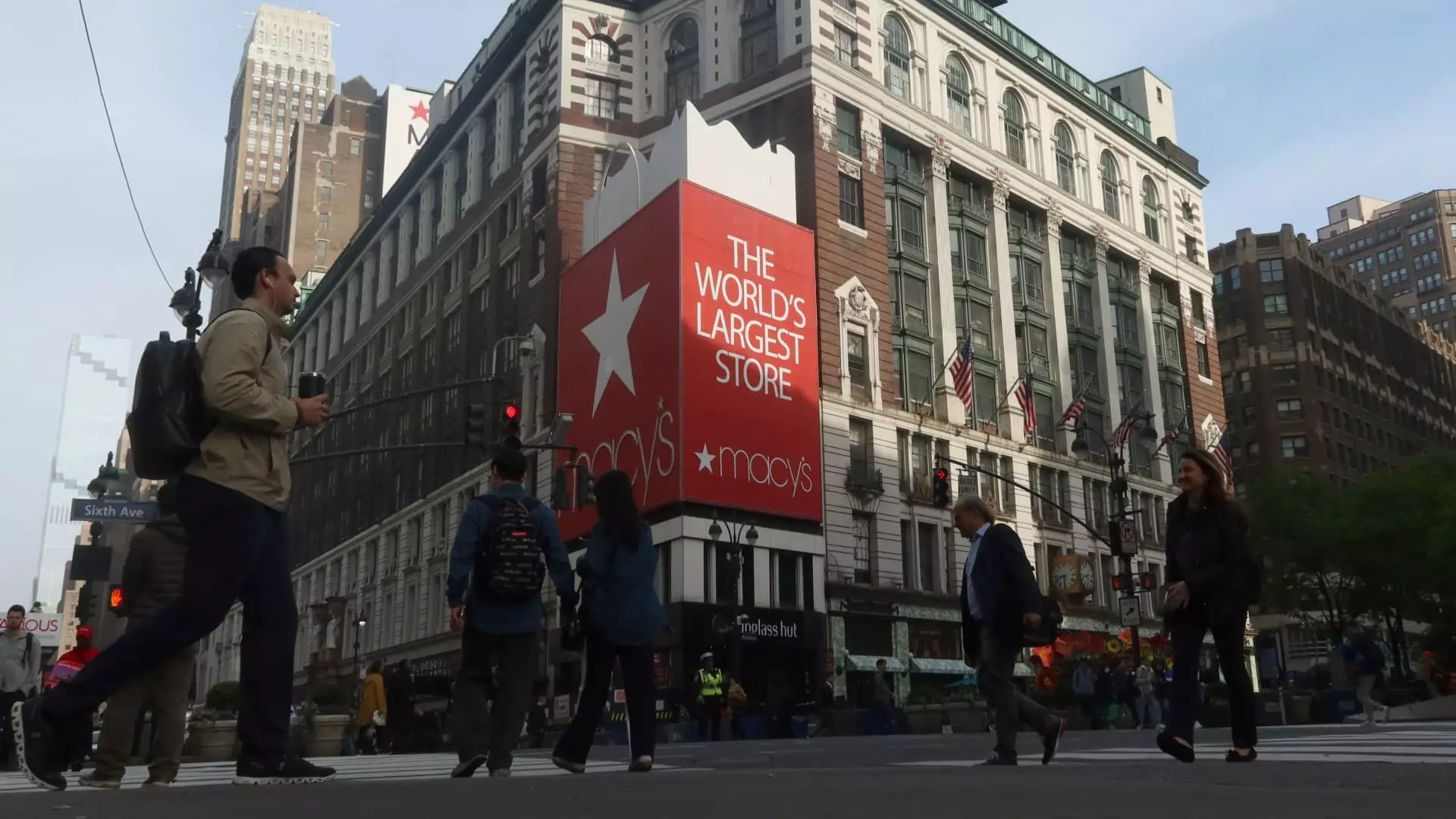The recent drop in Bitcoin prices caused a ripple effect in the stock market, with companies tied to the cryptocurrency experiencing significant losses. Coinbase and MicroStrategy both saw a 5% decline in premarket trading, reflecting the overall bearish sentiment in the market. This volatility highlights the risks associated with investing in cryptocurrency-related stocks, as the market can be highly unpredictable.
In contrast to the crypto stocks, the educational technology sector saw a positive uptick, with Instructure’s stock rising by more than 3%. This increase was fueled by reports of interest from private equity firms Francisco Partners and KKR in a potential acquisition. The final round of bidding and the submission of binding offers next week indicate potential growth and strategic partnerships in the sector.
Macy’s, a prominent retailer, experienced a boost in share prices after an investor group raised its takeout offer. The revised offer of $24.80 per share, up from $24, demonstrates confidence in the company’s future prospects. This development showcases the resilience of the retail sector despite the economic uncertainties caused by the pandemic.
Tesla, a leading electric vehicle manufacturer, continued its upward trajectory with a 2% increase in stock prices. The positive momentum followed the company’s strong second-quarter vehicle deliveries, which exceeded analyst expectations. This success underscores the growing demand for electric vehicles and Tesla’s position as a key player in the market.
Novo Nordisk, a pharmaceutical giant, saw a 1.9% rise in U.S. traded shares despite concerns raised by a Harvard study linking semaglutide to an increased risk of a rare eye disease. Deutsche Bank’s assessment of the study as having “very low” quality evidence suggests that the impact on Novo Nordisk’s business may be limited. This development highlights the complex relationship between healthcare research and stock performance.
Shell’s shares increased by 1% as the company announced expectations of posting an impairment hit of up to $2 billion tied to its Singapore and Rotterdam plants. Despite this financial setback, the market’s positive response indicates optimism regarding Shell’s long-term prospects. This resilience reflects the energy sector’s ability to navigate challenges and adapt to changing market conditions.
The stock market’s recent dynamics demonstrate the interconnectedness of various industries and the need for investors to stay informed and adapt to market trends. While volatility and risks are inherent in investing, opportunities for growth and value creation also abound. By analyzing and understanding the factors influencing stock prices, investors can make informed decisions and navigate the ever-changing landscape of the market.

